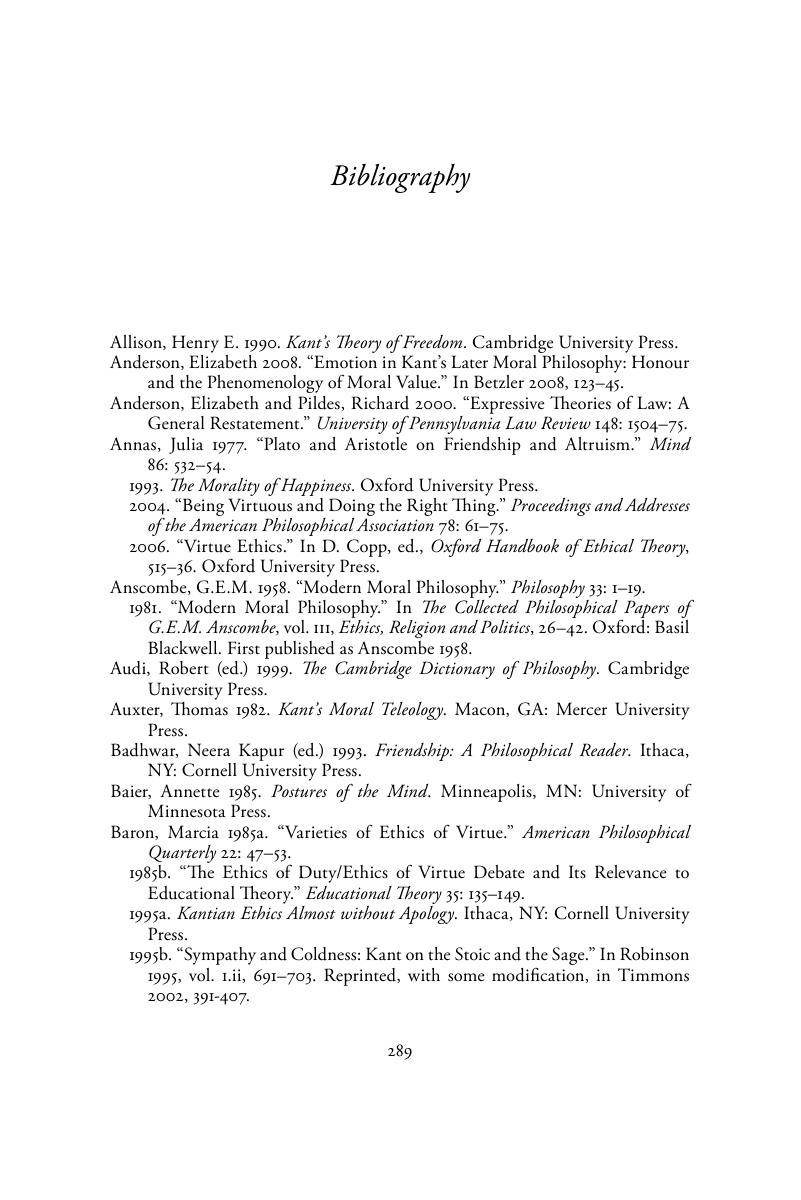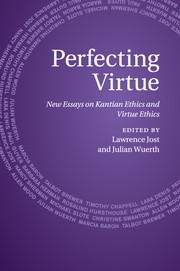Book contents
- Frontmatter
- Contents
- Notes on contributors
- Acknowledgements
- List of abbreviations
- Introduction
- 1 Virtue ethics in relation to Kantian ethics: an opinionated overview and commentary
- 2 What does the Aristotelian phronimos know?
- 3 Kant and agent-oriented ethics
- 4 The difference that ends make
- 5 Two pictures of practical thinking
- 6 Moving beyond Kant's account of agency in the Grounding
- 7 A Kantian conception of human flourishing
- 8 Kantian perfectionism
- 9 Aristotle, the Stoics, and Kant on anger
- 10 Kant's impartial virtues of love
- 11 The problem we all have with deontology
- 12 Intuition, system, and the “paradox” of deontology
- Bibliography
- Index
- References
Bibliography
Published online by Cambridge University Press: 04 February 2011
- Frontmatter
- Contents
- Notes on contributors
- Acknowledgements
- List of abbreviations
- Introduction
- 1 Virtue ethics in relation to Kantian ethics: an opinionated overview and commentary
- 2 What does the Aristotelian phronimos know?
- 3 Kant and agent-oriented ethics
- 4 The difference that ends make
- 5 Two pictures of practical thinking
- 6 Moving beyond Kant's account of agency in the Grounding
- 7 A Kantian conception of human flourishing
- 8 Kantian perfectionism
- 9 Aristotle, the Stoics, and Kant on anger
- 10 Kant's impartial virtues of love
- 11 The problem we all have with deontology
- 12 Intuition, system, and the “paradox” of deontology
- Bibliography
- Index
- References
Summary

- Type
- Chapter
- Information
- Perfecting VirtueNew Essays on Kantian Ethics and Virtue Ethics, pp. 289 - 301Publisher: Cambridge University PressPrint publication year: 2011



